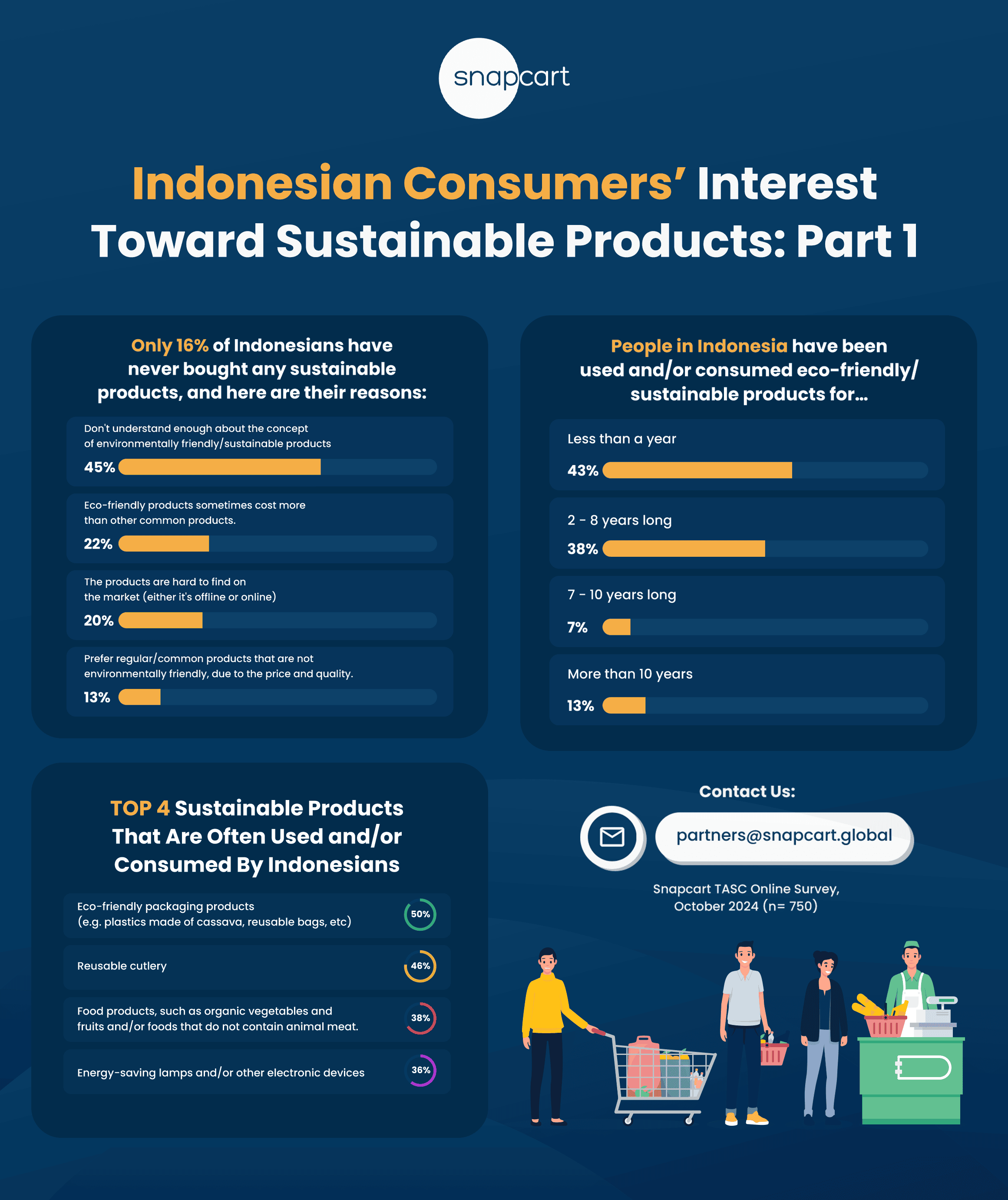As environmental awareness rises globally, Indonesian consumers are also showing increasing interest in sustainable products.
According to our recent survey, a comprehensive understanding of their purchasing behavior reveals both challenges and opportunities in the eco-friendly product market, as you can check in the infographic below.

Our study discovered that Indonesian consumers have adopted sustainable products at varying paces. According to the survey:
- 43% have only started using sustainable products within the last year, indicating growing awareness.
- 38% have used eco-friendly products for 2-8 years, showing a more established consumer base.
- 7% have a 7-10 year history of using such products, while 13% have been using them for over a decade.
Top 4 Sustainable Products Used by Indonesians
Among the sustainable products currently popular in Indonesia, four key categories stand out:
- Eco-friendly packaging products (e.g., plastics made of cassava, reusable bags, etc.) are the most popular, with 50% of consumers using them.
- Reusable cutlery follows closely with 46% adoption, showing consumers’ shift toward reducing single-use plastic consumption.
- Organic food products such as organic vegetables or those free from animal meat are consumed by 38% of the respondents.
- Energy-saving lamps and electronic devices come in at 36%, indicating interest in energy efficiency.
On the other hand, while only 16% of Indonesians have yet to purchase any sustainable products, their reasons offer insights into the hurdles for sustainable consumption:
- Lack of Awareness: A significant 45% of consumers admitted they don’t fully understand the concept of environmentally friendly products, highlighting the need for better education on the subject.
- Cost Concerns: 22% feel that sustainable products are more expensive than regular options, suggesting price sensitivity in the market.
- Limited Availability: 20% said these products are hard to find either online or offline, signaling a gap in distribution channels.
- Preference for Common Products: 13% of consumers prefer regular products, mainly due to a balance of price and quality.
The Path Ahead for Sustainable Products in Indonesia
While the Indonesian market is gradually embracing sustainable products, the key barriers remain cost, availability, and awareness. Brands and retailers need to focus on making sustainable options more accessible and affordable while educating consumers on their environmental impact.
For more information, contact us at partners@snapcart.global .





